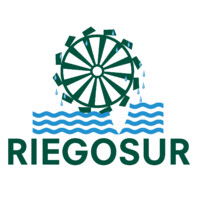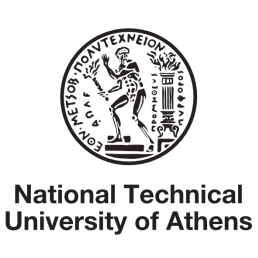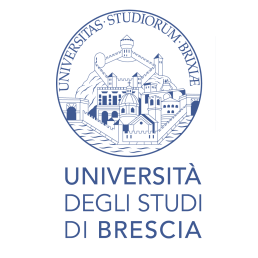RIEGOSUR, S.A
|
The company RIEGOSUR has its headquarters in Seville and with extensive experience in the world of water and the environment in all its aspects, from the construction of hydraulic infrastructure of all types to gardening and forestry works and services. Since its constitution in 1971, RIEGOSUR has managed to position itself with important references among the first Spanish contracting companies for hydraulic works of all types, both water (supplies, reservoirs, tanks, pumping stations, water treatment stations, irrigation, channeling...), as well as waste water (sanitation, wastewater treatment plants...). We also design and manufacture all sort of hydraulic equipment for dams and channels through our subsidiary company INAGEN, S.L. In parallel, RIEGOSUR has been developing the environmental section, having carried out all types of environmental works and services for official organizations and private clients (environmental restorations in channels, silvicultural treatment works, construction of urban parks, adaptations of public use areas, firefighting works in the mountains...). |
INSTITUTO TECNOLÓGICO DE CANARIAS
|
The company Instituto Tecnológico de Canarias (ITC) is a government-owned company under the private law attached to the Canary Islands Regional Government, with over 25 years’ experience committed to science and technology as essential resource in the socioeconomic transformation and sustainable development of the Canary Islands. We contribute to the business competitiveness opening the way to new areas of the industrial and technological sector. As an instrumental body of the Canary Government, our activity is set in the implementation of regional research and innovation promotion policies applicable to the production sector, as well as the execution of international collaborative and co-operation projects as the execution of international collaborative and co-operation projects. Our R&D&i activity is aligned with specialisation areas identified in the Canary Intelligent Specialisation Government Strategy (RIS3) for 2014-2020, the Island group socioeconomic transformation roadmap which defines regional public investment in research, development and innovation. |
UNIVERSIDAD DE SEVILLA
|
The University of Seville (US) is a public university based in Seville, Andalusia (Spain). It is the third Spanish university in number of students and the first in Andalusia, as well as one of the oldest, with more than 500 years. In the Times Higher Education Ranking it is among the 600-800 best universities and among the best 400 in Engineering and Technology and also in Computer Sciences worldwide in 2019. More than eighty thousand people make up the university community, including students, professors and administration and service professionals. The University of Seville has its own VII Research and Transfer Plan and numerous facilities, including departments, research centers and university institutes, in which more than 400 research groups and almost 4,500 researchers work. This translates into nearly 7,500 scientific publications a year of great international impact. In addition, the university, in collaboration with the Higher Council for Scientific Research, participates in numerous mixed research centers. |
NATIONAL TECHNICAL UNIVERSITY OF ATHENS, S.A
|
The National Technical University of Athens (NTUA) is structured according to the continental European system for training engineers, with an emphasis on solid background. The duration of courses leading, after the acquisition of 300 credit units to a Diploma, of Master’s level, is five years. The valuable work of NTUA and its international reputation are due to its well-organised educational andresearch system, the quality of its staff and students, and the adequacy of its technical infrastructure. NTUA graduates were pivotal to Greece’s pre-war development and to post-war reconstruction. The graduate engineers who staffed public and private technical services and companies were and remain by general consent, equal to their European counterparts. Many have been elected to distinguished teaching and research positions in well-known universities all over the world. |
POLITECNICO DI TORINO
 |
|
POLITO (Politecnico di Torino) was the first Italian Engineering School founded in the wave of the technical and scientific innovation that gave rise to the most prestigious European polytechnic schools in the mid-19th century. Founded as School for Engineers in 1859, it then became Regio Politecnico di Torino in 1906. Engineers, architects, designers and urban planners have been trained at Politecnico di Torino for over 160 years with rigor, integrity and high-level standards. This long ever-changing history has rated Politecnico among the top European technical Universities for education and research, with 38,700 students and a teaching staff of more than 1,000. In an evolving global context disrupted by the effects of globalization, climate change, population aging, new and increasingly pervasive technologies, Universities are expected to progress in order to produce an impact on a rapidly changing society. Politecnico di Torino has therefore decided to transform itself into a “platform” University expected to be permeable, inclusive, open to the labour market and to industry, with a key role in innovation and lifelong learning. The goal is to become a driving force for a societal sustainable development. |
UNIVERSITY OF BRESCIA
|
The University of Brescia (UNIBS), is a young university with strong roots in one of the richest and most innovative areas in Europe. It contributes to the sustainable development of a territory in search of a balance between industrial development, environmental sustainability and quality of life. The University is a "free learning community" which expresses its social responsibility by committing itself to promoting a peaceful and open society through the inclusion and integration of the many diversities within it. The University of Brescia promotes knowledge circulation between research, production and society, with the goal of improving quality of life and well-being via justice and social, institutional, economic and environmental sustainability. In an era of rapid social and technological evolution, it attempts to cultivate a diverse, welcoming and supportive community whilst sticking to the common good approach. hrough outstanding education, excellence in research and community development, the University of Brescia empowers students to address global issues. Inspired by the values of democratic constitutionalism, UniBS encourages cooperation with Europe and the global community while fostering solidarity, inclusivity, innovation, responsibility, training, competence, well-being and sustainable development.
|






